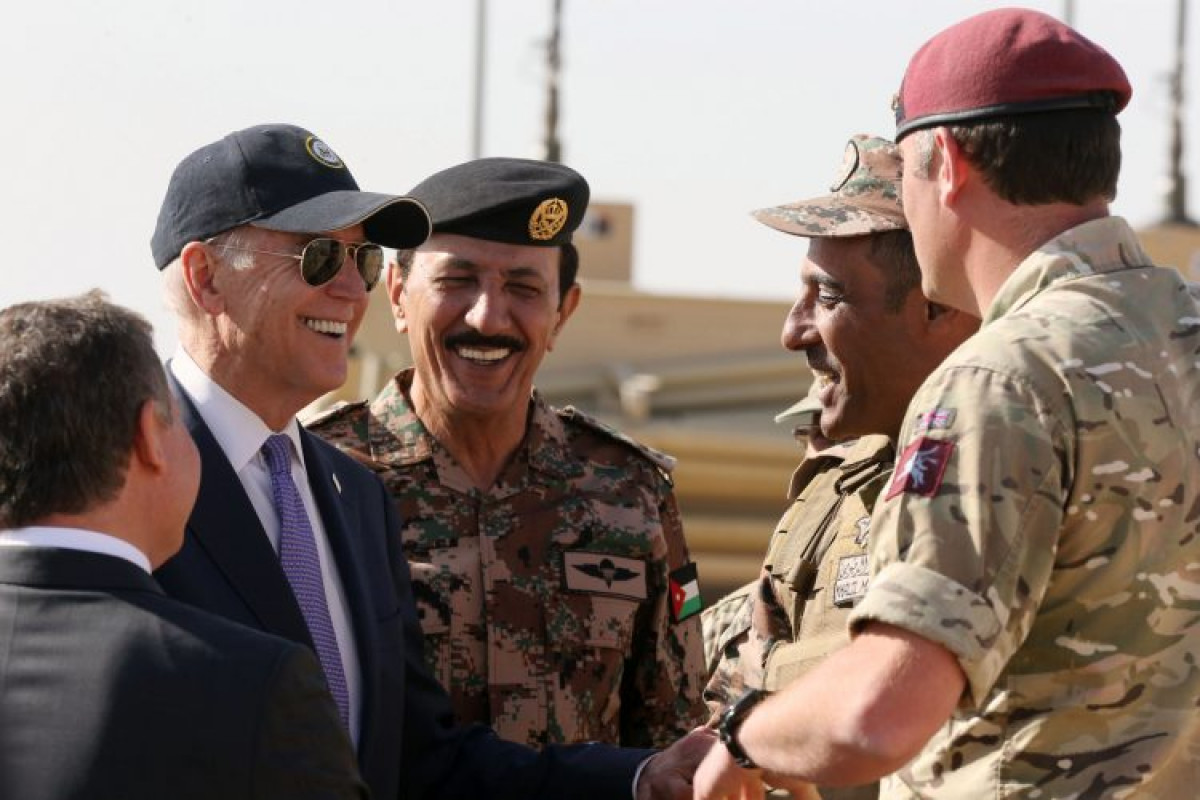 92
92
Jordan and the US have a long history of cooperation, based on decades-old common political, military, and economic interests.
Jordan was designated as a major non-NATO ally by the US in 1996, following the establishment of diplomatic ties between the two nations in 1931.
Jordan has always been a regional player, sharing borders with Saudi Arabia, Iraq, Syria, and occupied Palestine [Israel].
Jordan also has a sizable port on the Red Sea’s Gulf of Aqaba, which serves as an important commercial route. Jordan’s geopolitical location near Palestine, Lebanon, Syria, Iraq, the Red Sea, and the Persian Gulf has prompted Western attention, making Jordan the ideal bastion for Americans.
Due to Jordan’s strategic significance, the United States is prepared to expand its engagement with its loyal lackey in the military, political, and economic fields.
Jordan has sought to leverage agreements that have drawn a significant number of Western military and economic presences to invest in the country’s ailing economy.
As a result, Jordan’s King Abdullah II travelled to Washington to strengthen ties with Biden, becoming the Arab world’s first leader to meet with Biden since he assumed office.
Abdullah II’s visit to Washington, D.C. which comes months after a failed coup attempt against his throne, has been described as “historic,” with Biden pledging strong US support for Amman and emphasizing the critical role of Abdullah II’s leadership within America’s interests.
According to the White House spokesperson, the Jordanian monarch’s visit to the United States characterized the two countries’ long-standing partnership, giving a chance to discuss many Middle East problems and Jordan’s indispensable role in promoting so-called “peace and stability”.
According to White House officials, the emphasis on Jordan’s vital role in fostering regional peace and tranquillity may help restore Jordanians’ influence in the Middle East and enable them to exert more impact on regional issues, especially over the Palestinian conflict. The unique nature of Abdullah II’s visit is quite evident, given his meetings with Biden and senior members of the US Congress and behind-the-scenes talks between the Jordanian delegation and the US Department of Defense’s high-ranking generals.
What seems to be occurring is that Jordan is becoming central to the Biden administration’s overall strategy for the Middle East region, particularly in light of the tense and somewhat antagonistic relationship under Trump.
While maintaining his country’s peaceful relations with the Zionist regime, King Abdullah has been critical of Netanyahu since he took office. But now, as Netanyahu and Trump have both exited the political scene, there is an excellent possibility for the US and Jordan to rekindle their traditional alliance. Jordan signed a peace deal with Israel 26 years ago, designating it as the custodian of the Holy Al-Aqsa Mosque, but the ongoing friction between Amman and Tel Aviv casts doubt on the pact’s future. Thus, Biden’s cordial ties with Abdullah II may contribute to alleviating Amman’s sociopolitical vulnerabilities following the last coup attempt.
Abdullah, too, may attempt to make use of agreements that would bring a considerable number of US military and commercial presences to invest in the country’s economy.
Comment
Post a comment for this article